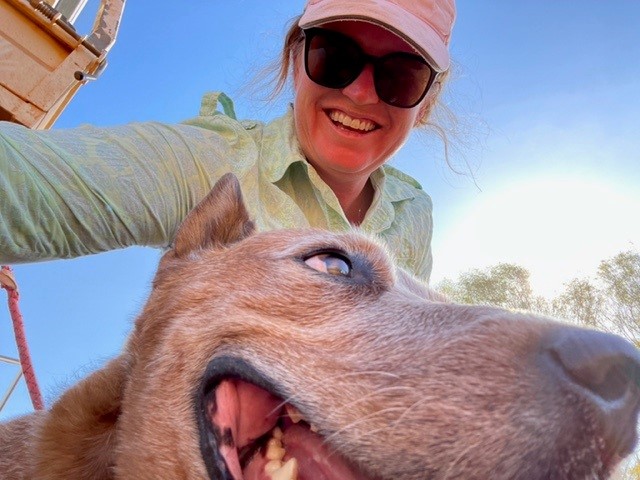A new groundbreaking report has been released by wildlife ecologist Tracey Kreplins, at the forefront of predator management in Western Australia. As a research scientist under the Western Australian Wild Dog Action Plan, Tracey has been addressing the critical issue of wild dogs threatening livestock and biodiversity in the region.
Tracey Kreplins has recently released her Churchill Fellowship report after travelling on her Churchill Fellowship to South Africa, where she collaborated with a diverse group of predator researchers to gain insights into international predator management.
Her work specifically focused on the Caracals and black-backed jackals, which parallel the challenges faced by sheep farming and cattle production areas in Western Australia.
Her report sheds light on alternative forms of predator management, including both traditional and non-lethal tools. Tracey emphasizes the importance of adapting to changing landscapes and the need for innovative approaches to mitigate losses to agriculture and conserve biodiversity. In Western Australia, she notes a paradigm shift in predator management, with an increasing focus on non-lethal tools such as visual and auditory deterrents, guardian animals, and landscape-scale lethal tools.
One significant difference highlighted in Tracey’s’ findings is the proactive nature of predator management in Western Australia, facilitated by Recognized Biosecurity Groups and a consistent control program across large landscapes. In contrast, South Africa relies more on individual farmers carrying out control on their properties, often reactive to observed losses.
Tracey also delves into the evolving socio-economic milieu surrounding predator management, acknowledging the increasing push for alternative tools and the cultural value of predators. She advocates for understanding differing perspectives and emphasizes the necessity of lethal control as a welfare tool for the protection of biodiversity, livestock, and lives.
The Winston Churchill Trust commends Tracey Kreplins for her pioneering work in advancing predator management strategies. The knowledge and relationships she gained during her travels in South Africa are recognized as invaluable to the ongoing efforts in Australia. Tracey’s commitment to merging conservation and agricultural enterprises is considered instrumental for the future success of predator management programs.
The Trust looks forward to the continued impact of Tracey’s research and anticipates that her findings will shape future projects exploring the coexistence of predators and livestock production in Australia.
